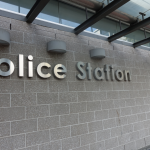Getting a DUI Dismissed if Diagnosed with Depression

If you have been diagnosed with a mental condition like depression, you may be able to have criminal charges against you dismissed under a Section 32 order.
Section 32 is a provision of the Mental Health (Forensic Provisions) Act which allows magistrates to dismiss charges against a person with a mental condition and divert them into treatment as an alternative to a criminal conviction.
Eligible mental conditions include depression, anxiety, bipolar, schizophrenia, developmental disorders, ADD, ADHD and post-traumatic stress disorder (PTSD).
To qualify for a Section 32 order, treatment needs to be available for your mental condition in a mental health facility. This does not mean that you will need to live at the facility, but just that you will need to attend for treatment on a regular basis.
Although it can be more difficult to get a Section 32 for a traffic matter, it is still definitely possible to get a drink driving case dismissed under a Section 32; including a PCA case (prescribed concentration of alcohol) and DUI case (driving under the influence).
How can I get a DUI or PCA dismissed if I’m diagnosed with depression?
If you are suffering from a mental condition like depression and you are facing criminal charges, it’s important that you seek legal advice from a lawyer who is experienced and has a proven track record of obtaining Section 32 orders.
Before you appear at court you will need to obtain a report from a mental health professional regarding your mental condition.
Section 32 orders can be complex, especially if you have a complicated psychological history, more than one mental health condition, or also have a drug or alcohol addiction.
When you attend court for your drink driving charge, your lawyer will request a Section 32 and present the evidence to support your case.
As it is up to the discretion of the individual magistrate whether or not to deal with your case under a Section 32, your lawyer may need to be persuasive.
What does the magistrate consider in the decision?
In order for a magistrate to grant a Section 32 for a criminal matter, they need to be convinced that granting a Section 32 is the most appropriate way to handle the case, and is more appropriate than imposing a criminal penalty.
The first step in the process is to determine whether or not you fall into the definition of suffering from a mental condition which would make you eligible for a Section 32.
The magistrate will make the decision by reviewing the psychological report and listening to any submissions from your lawyer on your behalf.
Once the magistrate is confident that your mental condition is appropriate for a Section 32, they will then decide whether it is more appropriate to enforce a penalty through the legal system or to divert you into the mental health system.
They may consider a range of factors when making that decision, including:
- The seriousness of the offence,
- The prevalence of the offence in the community,
- The need to deter others from committing offences of that type,
- The nature and seriousness of your condition,
- The link between your condition and the alleged conduct,and
- Whether the proposed treatment plan is an effective way of dealing with your condition.
Once they have decided to issue a Section 32 you will be given a number of conditions that you will have to abide by.
Will I get a criminal conviction?
If you are successful in obtaining a Section 32, you will not get a criminal conviction – in fact, there will not even be a finding of guilt.
However, you be required to seek treatment for your mental condition and to abide by other specific rules, which will include adhering to a treatment program which may consist of:
- Seeing a general practitioner and taking prescribed medication,
- Seeing a counsellor or psychologist on a regular basis eg weekly or fortnightly, and complying with their directions,
- Seeing a psychiatrist for a full assessment.
The treatment plan can last for up to 6 months.
If you fail to comply with the treatment plan, your case will be brought back before the court and your section 32 order will likely be revoked. You will then be dealt with in accordance with the law.
If you are facing a drink driving charge and think you may be eligible for a Section 32, speak to an experienced, specialist traffic lawyer who as soon as possible.
As Section 32 orders are often opposed by the police, and are generally more difficult to obtain in traffic cases, make sure your chosen practitioner has a strong track record of successfully getting Section 32 orders for their clients in drink driving cases.






